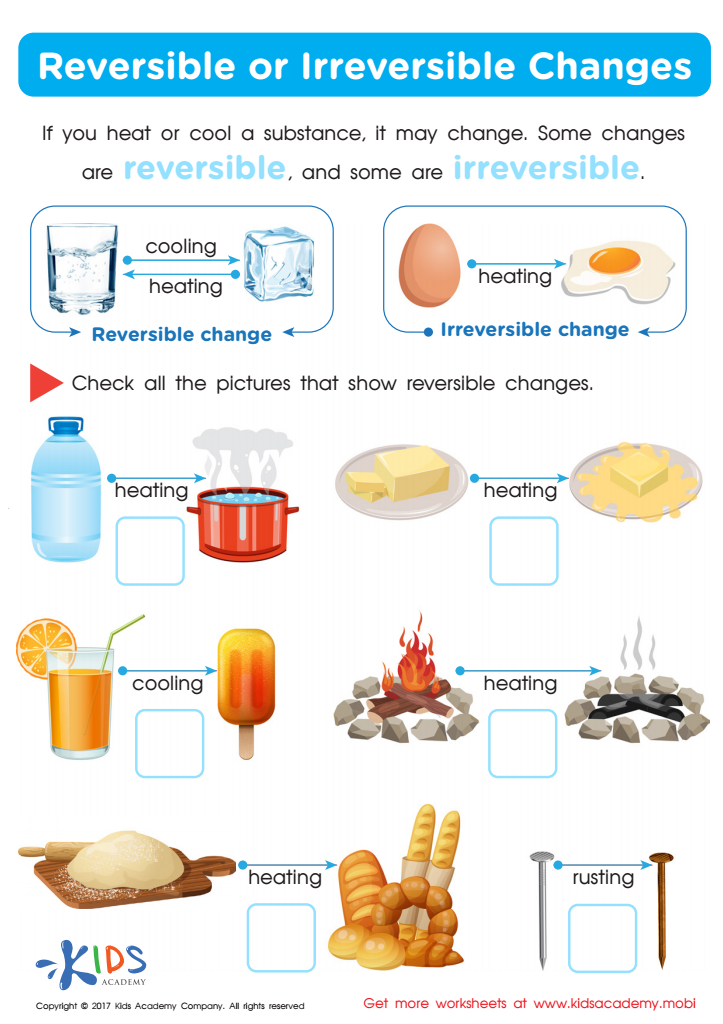
Reversible And Irreversible Changes
Reversible Changes. A change which can be reversed to form the 'original substance' is called a reversible change. Ice is a solid substance. When we heat ice, it melts to form liquid water. A change from solid to liquid takes place during the melting of ice. If we cool the water from ice to water, by heating, has been reversed by cooling.

Reversible vs irreversible changes 🤔 What's the difference? Learn with examples YouTube
As the name suggests, reversible changes are those changes whose effect can be reversed. Reversible means something that can be traced back to its original form. This article discusses about different types of changes that take place. Then we will discuss about reversible change in particular and then see different examples of reversible change.
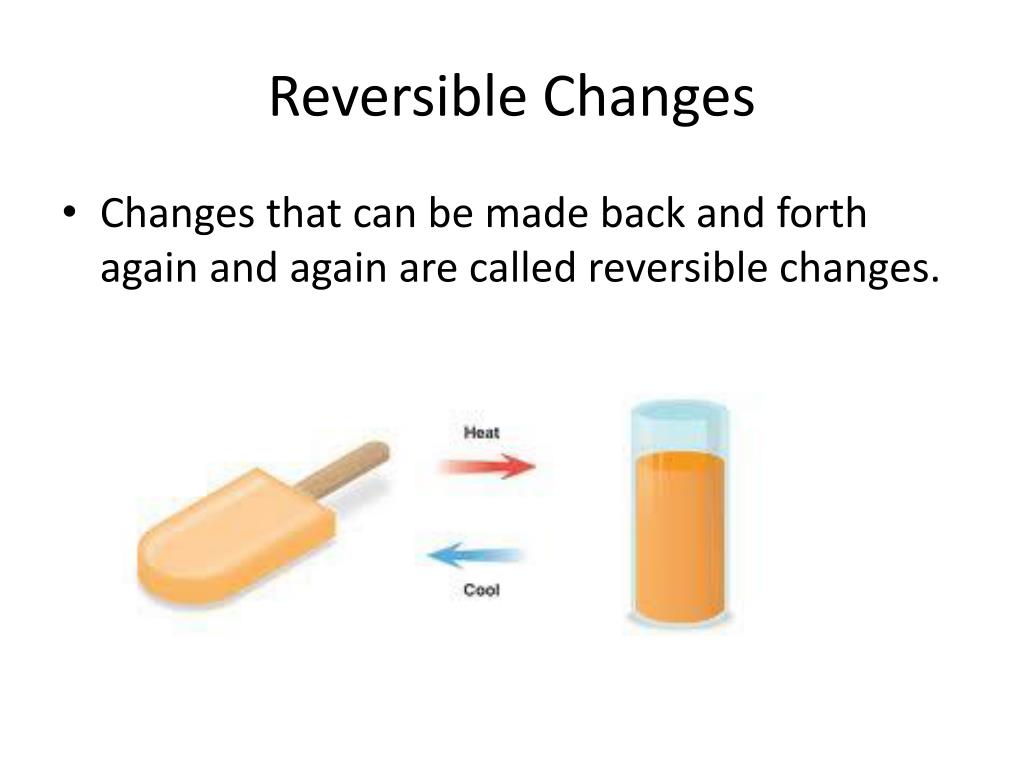
PPT Types of Changes PowerPoint Presentation, free download ID2730493
A reversible change might change how a material looks or feels. It sometimes creates new materials. Image caption, Freezing is a reversible change. For example you can freeze juice to make ice.
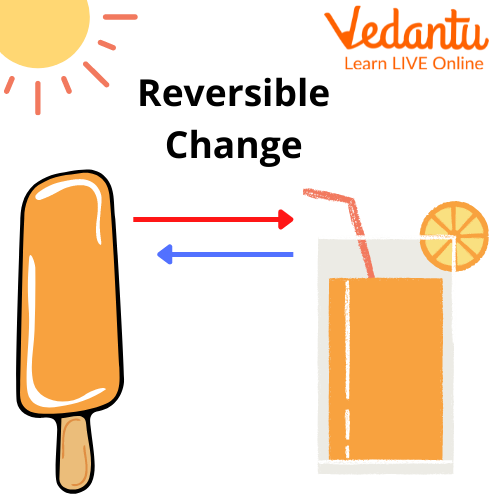
Reversible Changes and Irreversible Changes Learn Important Terms and Concepts
This worksheet forms part of lesson titled, 'What does reversible and irreversible change mean', which covers the following science topics: Graphs and pictures explaining the difference between temporary and permanent transformations; Chemical reactions (when sugar crystals dissolve), reversible reactions (when chocolate melts), and.

Reversible & Irreversible Teaching chemistry, Chemical and physical changes, Physical change
CBSE Notes Introduction to Reversible and Irreversible Changes Changes are the only constant thing around us. Changes can happen to both living and non-living things. The changes that happen around us can sometimes be reversible and sometimes irreversible.

What is a Reversible and Irreversible Change? Online Physics Video Guide YouTube
Reversible Changes Any changes which can be reversed or are a temporary conversion are known as reversible changes. The reactions which are reversible are called reversible reactions. In this reaction, one substance is modified into another form but a new compound is not formed.
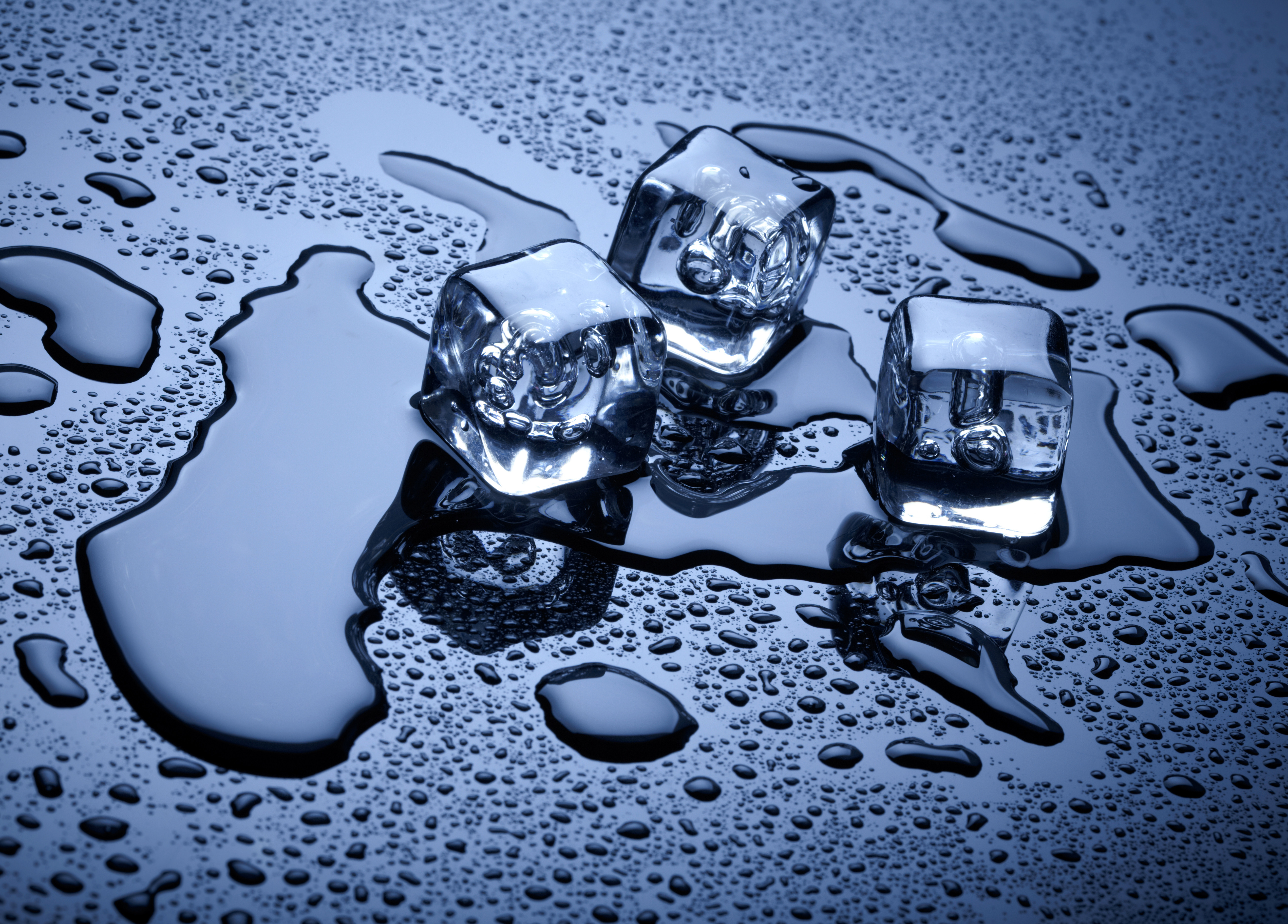
Chemistry Reversible And Irreversible Changes Level 1 activity for kids PrimaryLeap.co.uk
Reversible change Evaporation is taking place: a liquid is turning into a gas. Condensation is taking place: a gas is turning into a liquid. Both evaporation and condensation are taking place. These labels are for sticking onto a Venn diagram for sorting the cards. http://www.collaborativelearning.org/reversiblechange.pdf

what is meant by reversible change and irreversible change? Explain with example Brainly.in
Aasoka presents a video that aids in the understanding of the continuous change that all the matter around us undergo. It uses engaging animations to explain.
Anatomy and physiology study guide Reversible and Irreversible Changes
Changing by Heating or Cooling Heat is commonly used to change substances. Some of these changes can be reversed by cooling, but others are irreversible. This depends on the properties of the substance that is being heated and cooled. Reversible Changes When water is heated and cooled it goes through a series of reversible changes.

Reversible Changes or Physical Changes Reversible Changes Examples Physical Changes Examples
Explore more than 46 "Reversible And Irreversible Changes Picture Sort" resources for teachers, parents and pupils as well as related resources on "Reversible And Irreversible Changes Powerpoint". Instant access to inspirational lesson plans, schemes of work, assessment, interactive activities, resource packs, PowerPoints, teaching ideas at Twinkl!
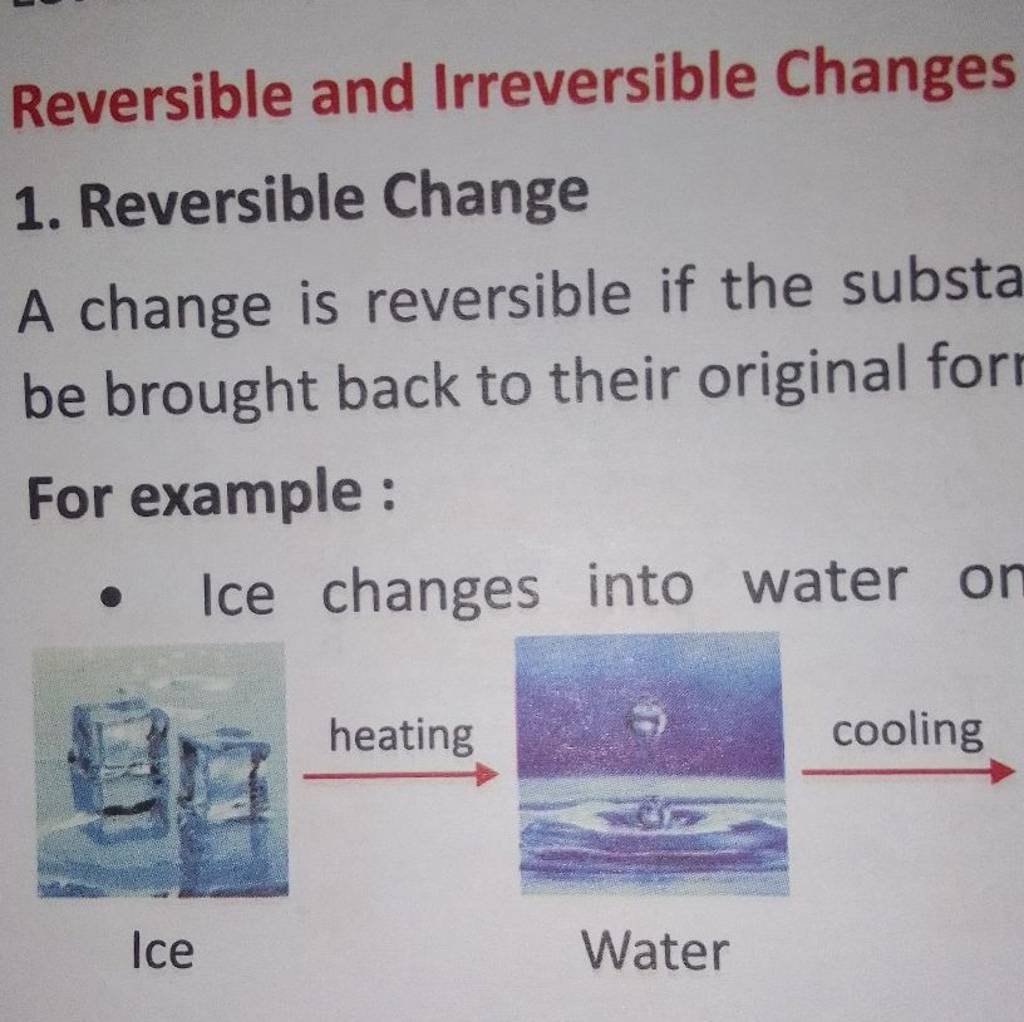
Reversible and Irreversible Changes 1. Reversible Change A change is reve..
A reversible change is a chemical change where no new materials are created and the original material can be recovered. Examples include freezing water to make ice or melting chocolate. What's the difference between a reversible change and an irreversible change?

Pin on Chemical Sciences
A reversible change changes how a substance looks or feels (changing the physical appearance), and it is easy to turn it back again. A reversible change may change the state of a substance such as, solid, liquid and gas. However, a reversible change does not change the amount of matter in a substance.
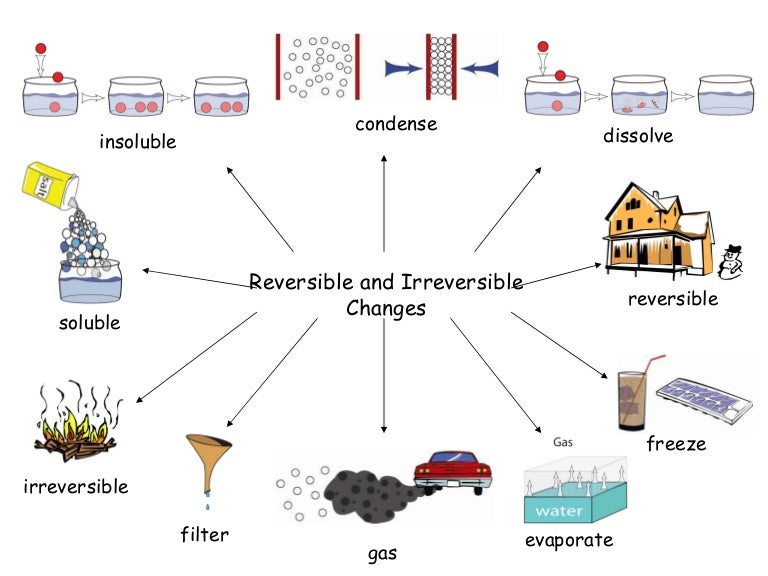
Reversible And Irrevesible Changes
A change that can be reversed or we can get back its original substance (shape) is called a reversible change, e.g., stretching of a rubber band, a balloon changing its size, shape on blowing air into it, water changing into ice on cooling, wax changes into liquid on heating, etc. Some Reversible Change Examples i.
Blog Bilingüe de Ciencias del Tercer Ciclo / Bilingual Resources for Social and Natural Sciences
A reversible change is a chemical change where no new materials are created, and the original material can be recovered. Examples include freezing water to make ice or melting chocolate. What's the difference between a reversible change and an irreversible change?
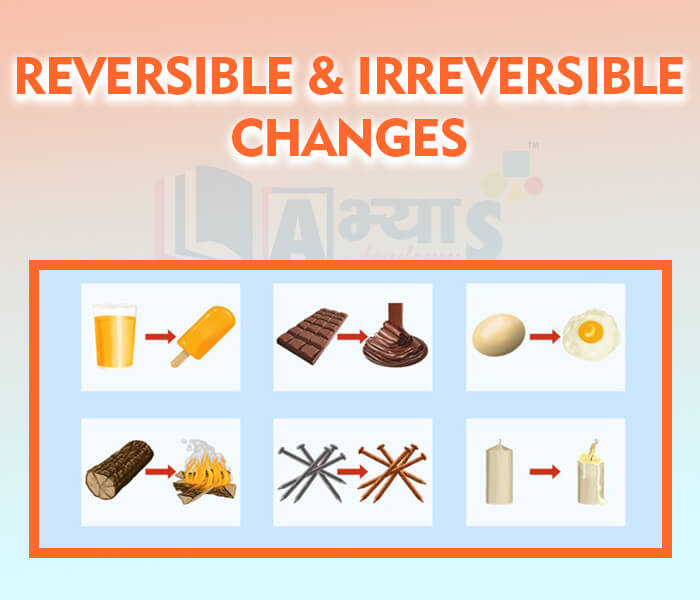
Concept Explanation
15,371 reversible change stock photos, vectors, and illustrations are available royalty-free. See reversible change stock video clips Image type Orientation Color People Artists AI Generated More Sort by Popular Abstract Designs and Shapes Technology Icons and Graphics Software Daylight saving time Line Mobile app Infographic User interface
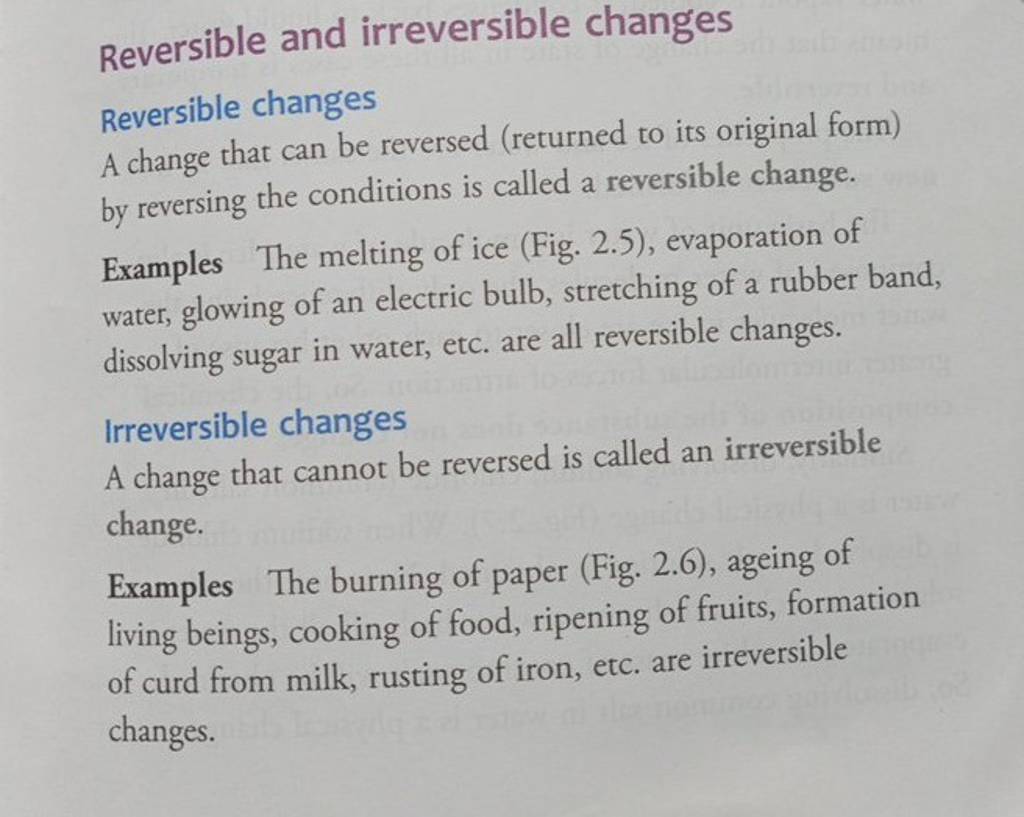
Reversible and irreversible changes Reversible changes A change that can
Examples of Physical Changes. Remember, the appearance of matter changes in a physical change, but its chemical identity remains the same. Crushing a can. Melting an ice cube. Boiling water. Mixing sand and water. Breaking a glass. Dissolving sugar and water. Shredding paper.